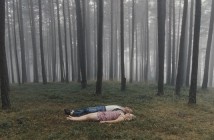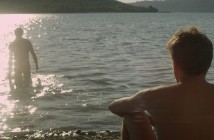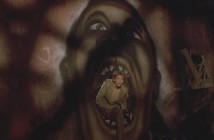
What a weak week of releases we have here behind us, albeit at least not so much in quality as in quantity. It’s a long while now since Netflix has so quiet a week that we could so easily cover almost all additions. Good that there are, as (almost) ever, gems—or, rather, a gem—among them: the bulk of this batch makes for passable viewing, but a single superb standout leads the pack, rearing its head to remind us that we mustn’t get lost too deep in the films of awards season for fear of losing more deserving greats like these.

Beautiful Darling
Far more than fifteen minutes of fame were had by Candy Darling, the transsexual woman whose low-budget movie stardom Andy Warhol fostered in the late ‘60s and early ‘70s. Employing reel upon reel of archival footage and excerpts from Darling’s own diaries read by Chloë Sevigny, debut director James Rasin crafts an image of the Kim Novak-obsessed misfit that’s at once deeply sad and oddly elating. To see the unhappy young boy Rasin presents us with blossom into this radiant centre of attention is, seemingly, to see someone become themselves, yet the tale told through the diaries is a good deal more complex. Darling’s prose is rewardingly incisive, an analytical bedrock to a film that becomes about so much more than one woman’s life. Rasin has made a surprisingly stirring exploration of celebrity and identity, an exposé more than deserving of the world of Warhol and co. into which he dives. RECOMMENDED.

Big Words
There’s a lovely moment in Big Words, the feature debut of writer/director Neil Drumming, where a character confronts another for assuming their being black means they must have voted for Obama. Presumptuousness like that is as fuel to the low-burning fire of this movie, whose quietness belies a certain sense of anger at the world. That’s channelled primarily through the trio of thirty-somethings who wander through its narrative, each a former member of a hip-hop act whose failure continues to cast its shadow, in some respect, over their lives. Drumming has a keen sense of these characters that gives his drama the strength needed to sustain itself with such measured pacing; brief blips in his dialogue aside, his scripting gives the movie an appreciable thematic heft to overcome a slight sense of aimlessness. Strong performances all round aid a great deal, from the weary worldliness of Gbenga Akinnagbe to the genial innocence of Zachary Booth. WORTH WATCHING.

Inescapable
Eyebrows might well arch upward at the opening credits of Inescapable, among them “in association with lesbianentertainment.com”; Netflix has always keenly updated its LGBT selection, could it now have taken the plunge into pornography? The answer, really, is yes: Helen Lesnick’s film isn’t what we tend to mean by that word, its narrative less the crux of the running time than the numerous sex scenes that unfold between its two couples who spend the weekend together in increasingly adulterous ways. And increasingly vivid visual detail. And that’s all well and good: titillation is as valid a service to provide as is drama, though perhaps not to audiences seeking to stream a movie. Bearing all the hallmarks of stereotypical porn—dreadful acting, dreadful segues from sex scene to sex scene, dreadful music—Inescapable is, demonstrably, precisely what it sets out to be. The problem is that it ought to set out to be it somewhere else. UNWATCHABLE.

It’s a Girl
“The three deadliest words in the world” claims the tagline for Evan Grae Davis’ debut, a documentary that embodies as well as any other the frustrations of delivering crucial content by way of frigid form. Despite his efforts to energise the information he presents by way of some animation sequences, Davis’ delivers a film that’s terribly flat, never able to lend its subject the import and impact it deserves. Interviewing a range of parents in China and India, where “gendercide” occurs regularly as a result of the patriarchal cultures’ imbalance between the worth of male and female births, It’s a Girl rightly highlights a dreadful international situation that’s horrifying to consider, yet to do so in such a disengaging manner is as much of a disservice to the material as it is a service. Fumbling his material in its (lack of) structure as much as its visual presentation, Davis has done little with a valuable opportunity here. SO-SO.

Stuck in Love
Would that life were as easy as it is for the characters in Stuck in Love, Josh Boone’s debut drama which does well to be as entertaining as it is given the remove an audience will inevitably feel from its characters. They, a family of writers fractured by the parents’ separation, manage almost miraculously to make Sundance-y soul searching seem something other than the awfully privileged pursuit it is. Chalk that up to Boone’s script, a self-analytical piece of writing that’s as funny as it is appreciative of the requirements of the act itself. The cast, of course, are key too, characters and relationships given impressive weight by these well-tapped talents. Greg Kinnear and Lily Collins are nicely acerbic to Nat Wolff’s youthful uncertainty, but it’s Logan Lerman who steals the show as an outsider desperately trying to prise his way into this broken home. Why he should want to is strange; less so when we feel the same attraction ourselves. WORTH WATCHING.

The Attack
How strange it is to think that we can both know somebody better than anyone else on the planet and yet not know them at all. It’s more than a philosophical quandary for the character at the heart of The Attack, an Arab-Israeli surgeon whose wife is killed in a suicide bombing and accused by the authorities of being the perpetrator. Ziad Doueri has made a film that offers the same sense of equivalent understanding to the Palestinian conflict as did Paradise Now; unlike that film, he offers us a route from the outside in, tethering us to an innocent desperately trying to understand the senseless sprawl of this ongoing horror. Smartly adopting the guise of a mystery narrative, he reaps plentiful reward from his genre-dabbling structure to make up for the few small problems it presents. For even with its failings, The Attack is a drama so desperate to understand the impossible it can’t but be admired. RECOMMENDED.

The Hunt (Read our full review)
Mads Mikkelsen has played villain well enough and often enough to make the idea of his playing a paedophile not at all unthinkable. It’s fascinating, then, that The Hunt is so keen to clarify that his character is not. For this is not a film about child abuse, as was director Thomas Vinterberg’s breakthrough The Celebration, but rather about the destruction and despair that can befall a population beset by paranoia. Mikkelsen is nothing short of extraordinary here, his face consumed with pain as he faces a blacklisting he cannot contest. Every bit as good is Annika Wedderkopp, who gives the confused young accuser precisely the innocence required to make of this movie the magnificent exploration of blind panic it is. Vinterberg’s drama is perhaps not always as controlled as we might like, but in the hands of his astonishing cast it is never anything less than utterly, awfully believable. HIGHLY RECOMMENDED.

The Last Stand (Read our full review)
How fitting that it should take a Korean to give us a good old-fashioned American action picture. Entrusting his long-awaited return to lead roles to A Tale of Two Sisters director Kim Jee-Woon, Arnold Schwarzenegger mostly acts as though he had never left in The Last Stand, employing an arsenal of increasingly-large guns and increasingly-creaky one-liners to defend his small border town from the rapidly-approaching threat of an escaped drug kingpin. It’s fitting that the film should implement such an excess of western iconography, given its aims to return to action genre to the roots from which comic book adaptations have tended to separate it; it’s in its sure nostalgic charm that the movie manages to make us cheer its cheesiness rather than jeer at it. The scenery-swallowing mania of Peter Stormare constitutes so grand a sub-villain it only highlights the real big bad’s innumerable issues; he is indicative of the movie The Last Stand does well—just about—to escape becoming. WORTH WATCHING.

Touchy Feely
It’s easy to sneer at the premise of Touchy Feely—in which a massage therapist’s sudden aversion to human flesh parallels her dentist brother’s strange success as a so-called “miracle healer”—perhaps most obviously because it’s a ludicrous idea for a film, like something Woody Allen might have made when stuck for ideas. Yet it’s a hurdle over which writer/director Lynn Shelton gamely vaults, somehow turning an overly kooky concept into a conduit to some affecting human drama. The script’s humour helps, especially given its delivery by way of actors as effective as Ellen Page and the exquisitely awkward Josh Pais. But even they aren’t quite enough to overcome the unnatural oddity of things here, especially given the non-role this conceit plays in ever pushing things toward a film that’s engaging more than merely momentarily. The third act’s noodly-music montage, so indie it almost hurts, only cements the reality that there’s very little story here to be told. SO-SO.



